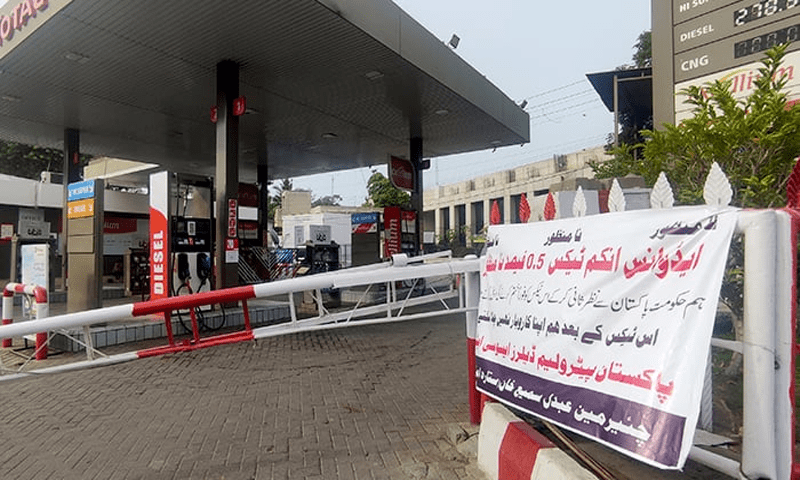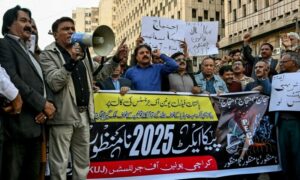ISLAMABAD: The All Pakistan Petroleum Dealers Association (APPDA) on Sunday threatened a nationwide strike in protest against the government’s plan to deregulate oil prices without consulting relevant stakeholders.
The proposed deregulation, spearheaded by the petroleum division and the Oil and Gas Regulatory Authority (Ogra), has sparked fears of foreign dominance over Pakistan’s oil market.
In a statement after an executive committee meeting, the APPDA warned that the deregulation would hand over control of the country’s oil market to foreign entities, jeopardising energy security.
It said the country lacked the oil storage capacity required for a free market and, in the given conditions, such a decision would be suicidal. Therefore, the government should re-examine the proposal.
Warn of economic fallout, risks to energy security
The APPDA warned of a countrywide strike to press for a reversal of the disastrous move.
Hassan Shah, the association’s spokesperson, said the “unfortunate decision” of deregulation would disrupt the entire supply chain from top to bottom and eventually give a strong foreign player a monopoly on the Pakistani oil market.
He claimed that Pakistani oil refineries would have no choice but to close since they lacked the financial capacity to compete with strong foreign players.
Mr Shah emphasised that it was not in the nation’s best interests to eliminate every possibility of competition and leave it up to one multinational company.
He said that the deregulation of lubricants and high-octane blending component (HOBC) has not benefitted consumers in any way, but it has resulted in a cartelising oligopoly, with a few companies competing for market share.
He warned that the action would also result in unprecedented inflation and depreciation of the exchange rate, irreparably harming the struggling economy.
Mr Shah said that because the local oil market was so unpredictable, no one should have full authority to manage fuel prices as it would result in a financial disaster.
He argued that as oil is vital to national security, the Ministry of Defence should assess the strategic ramifications of such measures. At the same time, the government and the central bank should examine how deregulation would affect inflation and the rupee’s value.
He said policymakers should not play with the country’s energy security to please a company.
Hassan Shah claimed that the deregulation would cause oil prices to rise steadily under various guises, which would be bad for businesses and the general public.
He clarified that Western nations have embraced free-market fuel pricing after ensuring smooth supply. They keep months’ fuel on hand to manage supply chain interruptions.
On the other hand, Pakistan cannot maintain stockpiles for more than 15 days. There are shortages and dryouts almost every month, particularly in smaller cities. Only stringent regulation can stop refineries, oil marketing companies and outlets from illegally increasing fuel prices.
He noted that allowing vulnerable consumers to be taken advantage of would cause market instability and impact the cost of almost everything. The fuel demand curve exhibits nearly perfect inelasticity.
Published in Dawn, February 24th, 2025
- Desk Reporthttps://foresightmags.com/author/admin/










